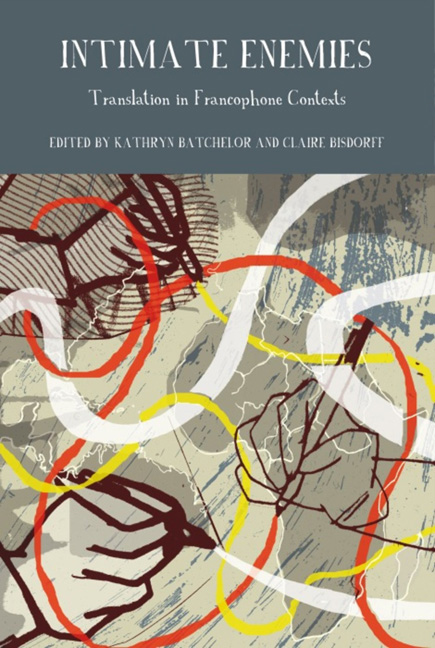Book contents
- Frontmatter
- Contents
- Illustration
- Acknowledgements
- Introduction: Translation – Formidable Enemy or Needed Friend?
- The Translation Market: Publishing and Distribution
- Literary Translation and Language Diversity in Contemporary Africa
- Translation and its Others: Postcolonial Linguistic Strategies of Writers from the Francophone Indian Ocean
- Publishing Francophone African Literature in Translation: Towards a Relational Account of Postcolonial Book History
- Publishing, Translation and Truth
- Writing and Translating in Practice
- Translation Challenges and New Avenues in Postcolonial Translation Theory
- Notes on Contributors
- Index
Literary Translation and Language Diversity in Contemporary Africa
from The Translation Market: Publishing and Distribution
- Frontmatter
- Contents
- Illustration
- Acknowledgements
- Introduction: Translation – Formidable Enemy or Needed Friend?
- The Translation Market: Publishing and Distribution
- Literary Translation and Language Diversity in Contemporary Africa
- Translation and its Others: Postcolonial Linguistic Strategies of Writers from the Francophone Indian Ocean
- Publishing Francophone African Literature in Translation: Towards a Relational Account of Postcolonial Book History
- Publishing, Translation and Truth
- Writing and Translating in Practice
- Translation Challenges and New Avenues in Postcolonial Translation Theory
- Notes on Contributors
- Index
Summary
As is well known, most African literatures are written in, and circulate in, a handful of global languages, namely, English, French, Portuguese, and sometimes Arabic, both in the source text and in translation. In effect, African literatures are characterized by minimal diversity in what I will henceforth describe as the language of literary or textual circulation. It is the lack of language diversity in the written African literary text, and the potential for remedying this situation through translation that will be the subject of this chapter. Much of the current interest in language diversity around the world stems from growing concern about the pace of language shift and language decline, and thus also concern about the speed with which the world's language diversity is being lost. In this chapter, however, I will not attempt to track and further discuss the broad implications of this trend in Africa. Rather, my focus will be on the relationship between translation and language diversity in African literature.
The very act of translation would seem to imply a process of making a text available in a language other than that used in the source text, and possibly contributing to language diversity. However, relatively few studies of translation in African literature ask how we might go about expanding the circulation of the African literary text to several more languages than is currently the case. Some, for example, highlight the extent to which an African-authored European language text should really be considered a translation from an African vernacular language. By contrast, my interests here pertain to the types of translation that might bolster language diversity in the language of literary circulation, especially within Africa itself. Thus, the question to be considered here is simply this: how might literary translation advance the principle and practice of language diversity in African literary writing? And what forms of literary translation will contribute to increasing the number of languages in which African literatures circulate? I will argue in what follows that the actual range of language diversity in highly multilingual societies cannot be fully replicated in mediated texts without eroding the dynamics that foster language diversity itself.
- Type
- Chapter
- Information
- Intimate EnemiesTranslation in Francophone Contexts, pp. 17 - 35Publisher: Liverpool University PressPrint publication year: 2013

